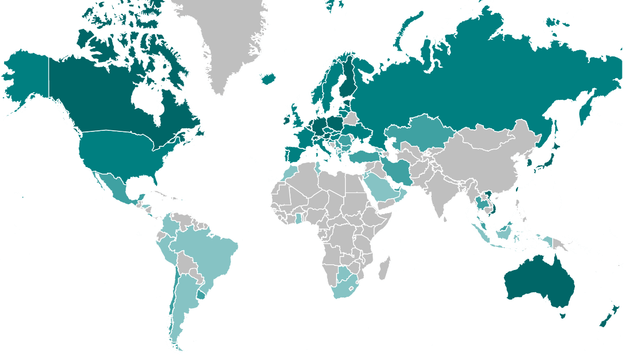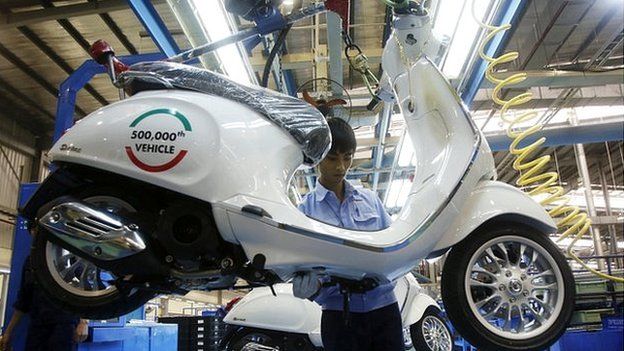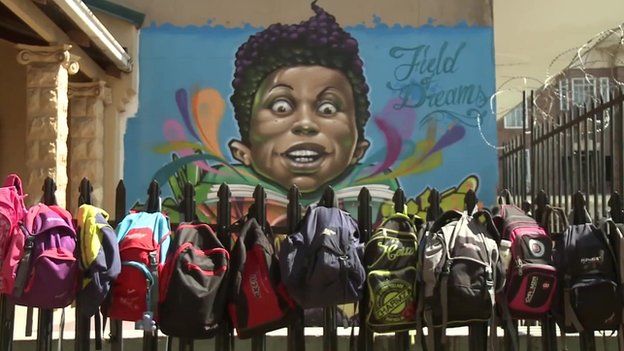BLACKEAGLE
SENIOR MEMBER
By Sean Coughlan Education correspondent

The biggest ever global school rankings have been published, with Asian countries in the top five places and African countries at the bottom.
Singapore heads the table, followed by Hong Kong, with Ghana at the bottom.
The UK is in 20th place, among higher achieving European countries, with the US in 28th.
The OECD economic think tank says the comparisons - based on test scores in 76 countries - show the link between education and economic growth.
"This is the first time we have a truly global scale of the quality of education," said the OECD's education director, Andreas Schleicher.
"The idea is to give more countries, rich and poor, access to comparing themselves against the world's education leaders, to discover their relative strengths and weaknesses, and to see what the long-term economic gains from improved quality in schooling could be for them," he said.
Overall rankings
Rankings based on maths and science, at age 15
In the UK, the study shows about one in five youngsters leave school without reaching a basic level of education - and the OECD says that reducing this number and improving skills could add trillions of dollars to the UK economy.
"I think it's partly a mindset, an expectation. There are plenty of examples of schools that have raised the bar dramatically," said education minister Lord Nash.
The analysis, based on test scores in maths and science, is a much wider global map of education standards than the OECD's Pisa tests, which focus on more affluent industrialised countries.

Hi-tech vision of the future: Experimenting with technology in Singapore
This latest league table, ranking more than a third of the world's nations, shows how countries such as Iran, South Africa, Peru and Thailand would appear on an international scale.
It shows once again the poor performance of the United States, slipping behind successful European countries and being overtaken by Vietnam. It also highlights the decline of Sweden, with the OECD warning last week that it had serious problems in its education system.
Economic growth potential
GDP increase if all 15 year olds achieved basic level of education (%)
The rankings are based on an amalgamation of international assessments, including the OECD's Pisa tests, the TIMSS tests run by US-based academics and TERCE tests in Latin America, putting developed and developing countries on a single scale.
The findings will be formally presented at the World Education Forum in South Korea next week, where the United Nations is to convene a conference on targets for raising global education by 2030.
'Every student to succeed'
The top five places are all taken by Asian countries - Singapore, Hong Kong, South Korea, Taiwan and Japan.
The five lowest-ranked countries are Oman in 72nd, Morocco, Honduras, South Africa and Ghana in last spot.
"If you go to an Asian classroom you'll find teachers who expect every student to succeed. There's a lot of rigour, a lot of focus and coherence," says Mr Schleicher.

Vietnam has overtaken the US: An Italian scooter company's factory near Hanoi
"These countries are also very good at attracting the most talented teachers in the most challenging classrooms, so that every student has access to excellent teachers."
The report, published by the OECD and written by Eric Hanushek from Stanford University and Ludger Woessmann from Munich University, argues that the standard of education is a "powerful predictor of the wealth that countries will produce in the long run".
"Poor education policies and practices leave many countries in what amounts to a permanent state of economic recession," says the report.
Millennium targets
Improving education would produce "long-term economic gains that are going to be phenomenal", says Mr Schleicher.
If Ghana, the lowest ranked country, achieved basic skills for all its 15-year-olds, the report says that it would expand its current GDP by 38 times, over the lifetime of today's youngsters.

Education standards are a "powerful predictor of the wealth" says the OECD's report
The report will provide evidence for next week's World Education Forum of how achieving education targets can deliver economic gains.
The milestone conference, under the auspices of the United Nations, will mark 15 years since the setting of education targets by world leaders.
These millennium targets for education, such as providing all children with a primary education, have not been fully achieved.
But the World Education Forum will set another round of global targets for the next 15 years.
Countries ranked on maths and science
1. Singapore
2. Hong Kong
3. South Korea
4. Japan (joint)
4. Taiwan (joint)
6. Finland
7. Estonia
8. Switzerland
9. Netherlands
10. Canada
11. Poland
12. Vietnam
13. Germany
14. Australia
15. Ireland
16. Belgium
17. New Zealand
18. Slovenia
19. Austria
20. United Kingdom
21. Czech Republic
22. Denmark
23. France
24. Latvia
25. Norway
26. Luxembourg
27. Spain
28. Italy (joint)
28. United States (joint)
30. Portugal
31. Lithuania
32. Hungary
33. Iceland
34. Russia
35. Sweden
36. Croatia
37. Slovak Republic
38. Ukraine
39. Israel
40. Greece
41. Turkey
42. Serbia
43. Bulgaria
44. Romania
45. UAE
46. Cyprus
47. Thailand
48. Chile
49. Kazakhstan
50. Armenia
51. Iran
52. Malaysia
53. Costa Rica
54. Mexico
55. Uruguay
56. Montenegro
57. Bahrain
58. Lebanon
59. Georgia
60. Brazil
61. Jordan
62. Argentina
63. Albania
64. Tunisia
65. Macedonia
66. Saudi Arabia
67. Colombia
68. Qatar
69. Indonesia
70. Botswana
71. Peru
72. Oman
73. Morocco
74. Honduras
75. South Africa
76. Ghana
Asia tops biggest global school rankings - BBC News

The biggest ever global school rankings have been published, with Asian countries in the top five places and African countries at the bottom.
Singapore heads the table, followed by Hong Kong, with Ghana at the bottom.
The UK is in 20th place, among higher achieving European countries, with the US in 28th.
The OECD economic think tank says the comparisons - based on test scores in 76 countries - show the link between education and economic growth.
"This is the first time we have a truly global scale of the quality of education," said the OECD's education director, Andreas Schleicher.
"The idea is to give more countries, rich and poor, access to comparing themselves against the world's education leaders, to discover their relative strengths and weaknesses, and to see what the long-term economic gains from improved quality in schooling could be for them," he said.
Overall rankings
Rankings based on maths and science, at age 15
- 1. Singapore
- 2. Hong Kong
- 3. South Korea
- 4. Japan
- 4. Taiwan
- 6. Finland
- 7. Estonia
- 8. Switzerland
- 9. Netherlands
- 10. Canada
- 11. Poland
- 12. Vietnam
In the UK, the study shows about one in five youngsters leave school without reaching a basic level of education - and the OECD says that reducing this number and improving skills could add trillions of dollars to the UK economy.
"I think it's partly a mindset, an expectation. There are plenty of examples of schools that have raised the bar dramatically," said education minister Lord Nash.
The analysis, based on test scores in maths and science, is a much wider global map of education standards than the OECD's Pisa tests, which focus on more affluent industrialised countries.

Hi-tech vision of the future: Experimenting with technology in Singapore
This latest league table, ranking more than a third of the world's nations, shows how countries such as Iran, South Africa, Peru and Thailand would appear on an international scale.
It shows once again the poor performance of the United States, slipping behind successful European countries and being overtaken by Vietnam. It also highlights the decline of Sweden, with the OECD warning last week that it had serious problems in its education system.
Economic growth potential
GDP increase if all 15 year olds achieved basic level of education (%)
- 1. Ghana, 3881
- 2. South Africa, 2624
- 3. Honduras, 2016
- 4. Morocco, 1591
- 5. Oman, 1427
- 6. Botswana, 1303
- 7. Macedonia, 1137
- 8. Peru, 1076
- 9. Qatar,1029
- 10. Saudi Arabia, 975
- 11. Albania, 929
- 12. Colombia, 910
The rankings are based on an amalgamation of international assessments, including the OECD's Pisa tests, the TIMSS tests run by US-based academics and TERCE tests in Latin America, putting developed and developing countries on a single scale.
The findings will be formally presented at the World Education Forum in South Korea next week, where the United Nations is to convene a conference on targets for raising global education by 2030.
'Every student to succeed'
The top five places are all taken by Asian countries - Singapore, Hong Kong, South Korea, Taiwan and Japan.
The five lowest-ranked countries are Oman in 72nd, Morocco, Honduras, South Africa and Ghana in last spot.
"If you go to an Asian classroom you'll find teachers who expect every student to succeed. There's a lot of rigour, a lot of focus and coherence," says Mr Schleicher.

Vietnam has overtaken the US: An Italian scooter company's factory near Hanoi
"These countries are also very good at attracting the most talented teachers in the most challenging classrooms, so that every student has access to excellent teachers."
The report, published by the OECD and written by Eric Hanushek from Stanford University and Ludger Woessmann from Munich University, argues that the standard of education is a "powerful predictor of the wealth that countries will produce in the long run".
"Poor education policies and practices leave many countries in what amounts to a permanent state of economic recession," says the report.
Millennium targets
Improving education would produce "long-term economic gains that are going to be phenomenal", says Mr Schleicher.
If Ghana, the lowest ranked country, achieved basic skills for all its 15-year-olds, the report says that it would expand its current GDP by 38 times, over the lifetime of today's youngsters.

Education standards are a "powerful predictor of the wealth" says the OECD's report
The report will provide evidence for next week's World Education Forum of how achieving education targets can deliver economic gains.
The milestone conference, under the auspices of the United Nations, will mark 15 years since the setting of education targets by world leaders.
These millennium targets for education, such as providing all children with a primary education, have not been fully achieved.
But the World Education Forum will set another round of global targets for the next 15 years.
Countries ranked on maths and science
1. Singapore
2. Hong Kong
3. South Korea
4. Japan (joint)
4. Taiwan (joint)
6. Finland
7. Estonia
8. Switzerland
9. Netherlands
10. Canada
11. Poland
12. Vietnam
13. Germany
14. Australia
15. Ireland
16. Belgium
17. New Zealand
18. Slovenia
19. Austria
20. United Kingdom
21. Czech Republic
22. Denmark
23. France
24. Latvia
25. Norway
26. Luxembourg
27. Spain
28. Italy (joint)
28. United States (joint)
30. Portugal
31. Lithuania
32. Hungary
33. Iceland
34. Russia
35. Sweden
36. Croatia
37. Slovak Republic
38. Ukraine
39. Israel
40. Greece
41. Turkey
42. Serbia
43. Bulgaria
44. Romania
45. UAE
46. Cyprus
47. Thailand
48. Chile
49. Kazakhstan
50. Armenia
51. Iran
52. Malaysia
53. Costa Rica
54. Mexico
55. Uruguay
56. Montenegro
57. Bahrain
58. Lebanon
59. Georgia
60. Brazil
61. Jordan
62. Argentina
63. Albania
64. Tunisia
65. Macedonia
66. Saudi Arabia
67. Colombia
68. Qatar
69. Indonesia
70. Botswana
71. Peru
72. Oman
73. Morocco
74. Honduras
75. South Africa
76. Ghana
Asia tops biggest global school rankings - BBC News
